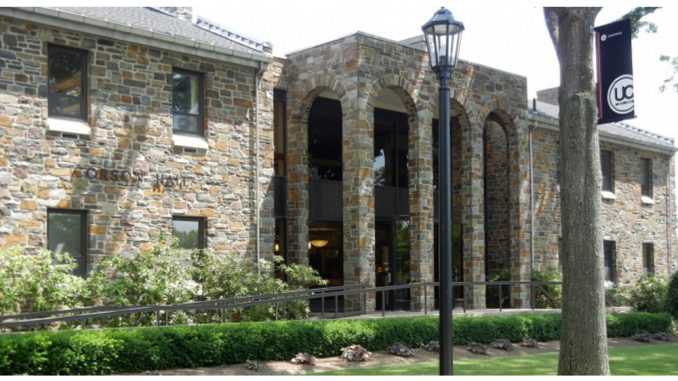
Garrett Bullock
gabullock@ursinus.edu
We need an appeal process to determine which resolution options and decision-maker a student may pursue when participating in the judicial process. This appeal process would ensure we receive due process as defined by the handbook. Per the Student Handbook, the due process clause “assures written notice and a resolution with an objective decision-maker.”Thus, students involved in the judicial process are guaranteed these protections.
Four resolution options are available to students. Informal Resolution, which states “every reasonable effort should be made to constructively resolve conflict” prior to the formal process, and three formal resolutions which are an Administrative Hearing (“a designated college official reviews the information related to a complaint … and issues appropriate sanction(s) for any findings of responsibility.”) a panel hearing, (“a hearing panel reviews the case information and issues a determination of the respondent’s responsibility for each alleged violation “), and an investigation resolution method (“the Title IX Coordinator designates investigators and hearing officers. Investigations … are generally completed within 60 calendar days.”). Sanctions range from a disciplinary warning (written warning) to dismissal from the college.
Ok, so what’s the problem? To me, the issue is this: What determines which resolution option a student will receive? The handbook states “The Vice President for College and Community Engagement or designee will determine the most appropriate resolution option to be used in a given case,” but what are the criteria the VP or designee uses to make this determination? Some are listed in the handbook, but, other than those relating to Title IX, they are nebulous. If I were a concerned student who has accused someone or been accused of violating the Code, it would be very unclear to me which option would be taken to ensure a just ruling.
That would be a less significant issue if it was not amplified by a second problem, which is students’ guarantee of an objective decision-maker as part of due process. This is the core of the issue. There is no way for a student to appeal which decision-maker or which process they receive if they believe that person or process is biased unless they feel as though they were victims of sexual or racial discrimination (essential protections). So, if I was previously employed by the administrator and we ended on bad terms, I could not appeal for a different one or for a panel hearing? Whether accuser or accused? Nope. If I am a part of an investigation and I have had previous, unrelated conflicts with an administrator, I cannot formally appeal for a different one? Nope.
If I think there is a conflict of interest between an administrator and an accuser or accused that will distort their judgment and impact my case, I cannot appeal to go for a panel hearing, where the three faculty members and two students are less likely to be biased? The handbook is silent, so no. The judicial process can determine a student’s future, but students have no way to appeal to ensure they receive an unbiased, objective decision-maker, which is supposedly guaranteed by the college. For this reason, a decision-maker appeals process is desperately needed. One can argue that this skepticism of administration’s objectivity is too pessimistic, hostile even. But assuming administrators can never act objectively is just as problematic as acting as though they always act objectively. It is silly to claim that advocating for student protections is hostile.
Adding this appeals process to account for regular human error should be seen as constructive. And yet, although I cannot speak for the entire student body, many students do not feel like they have or would receive(d) an objective decision-maker, which is telling. The uproar students have made over recent cases has wrongfully been confined to “students always taking students’ side,” when it actually represents students’ legitimate concern that their friends—and maybe themselves—have faced disproportionate repercussions because they could not appeal for the objective decision-maker they were guaranteed.
Fortunately, there is a solution to this problem. First, the College should redefine the criteria by which it determines which resolution process students receive, which will help students understand why they are receiving the decision-maker they are. Second, the College should create an appeals process for students. The way this process would work is that a student could make an appeal to the hearing panel, which is the most objective resolution option for students (there are five decision-makers and each can be challenged to ensure objectivity). Then, the panel accepts or rejects the hearing based on whether evidence suggests their original decision-maker is unbiased. Then, the panel recommends whether that student should be allowed to (1) pursue the same process just with a different administrator or (2) receive a different process altogether. These adjustments are not cumbersome or superfluous. They are simple and necessary. I hope the students will be listened to this time, but, even as an optimist, I doubt it.
When students reached out for compromise on clustering (the new housing system), we were ignored. There was no compromise. We were left in the dark. We were expected to trust the administration to unbiasedly engineer our living spaces through clustering. Further changes to our campus would also privilege the administration’s judgment, like upcoming changes to SASC’s composition. I am often told students are inactive because “they are entitled” or “would rather party and avoid issues” or “don’t care.” If that’s true, why did we turn out in droves for the clustering meeting? Why are we up-in-arms about removing trees on campus? Why is there a litany of students working as RAs, peer advocates, and other leadership roles?
It’s because we care. The lack of clarity and of an appeals process for a decision-maker are the problem at hand, and we students care enough to address that problem. I hope Ursinus does too.
